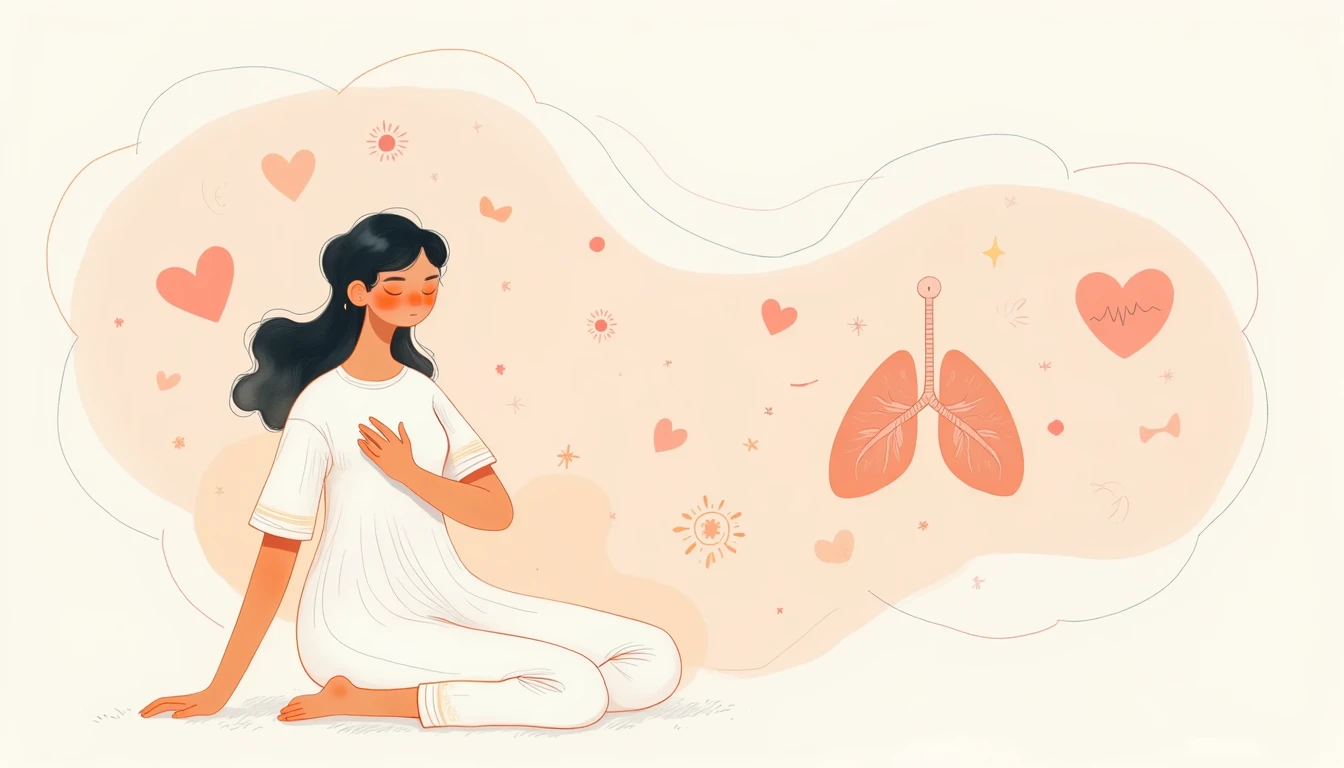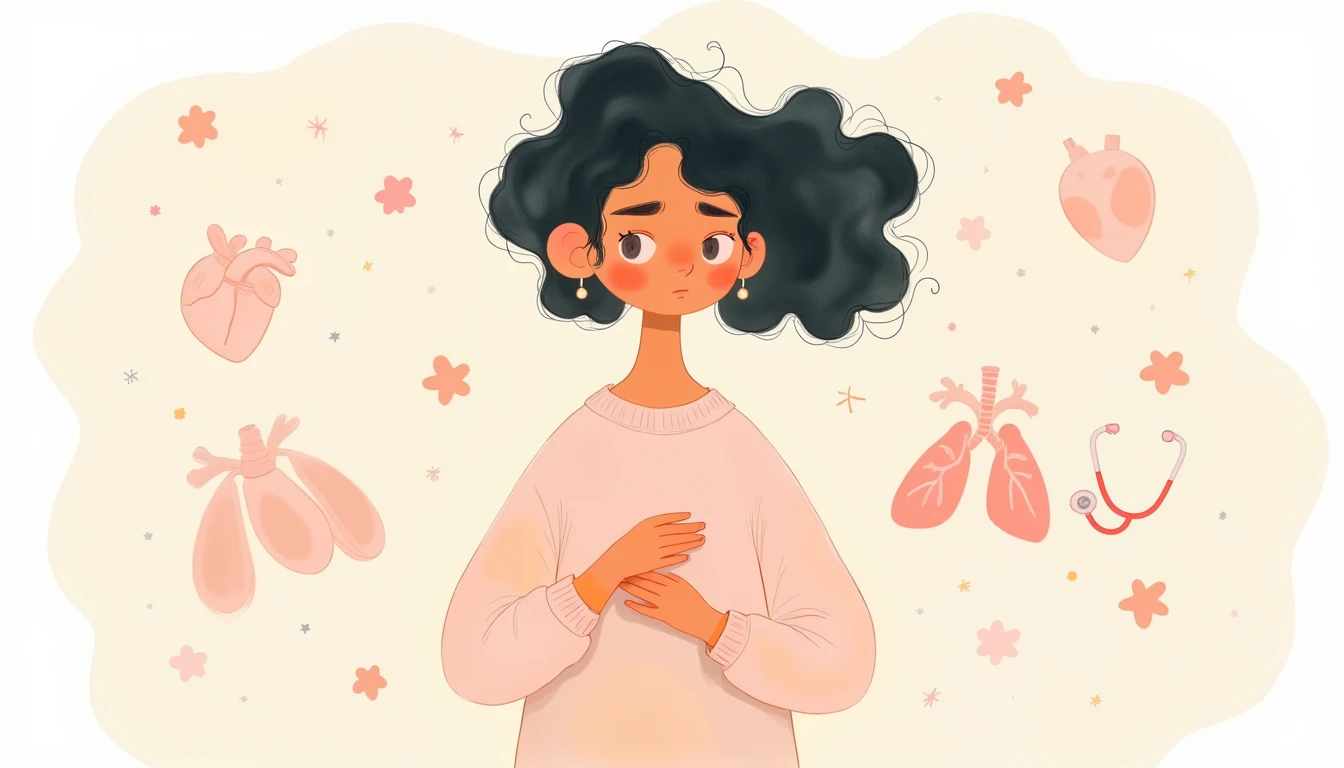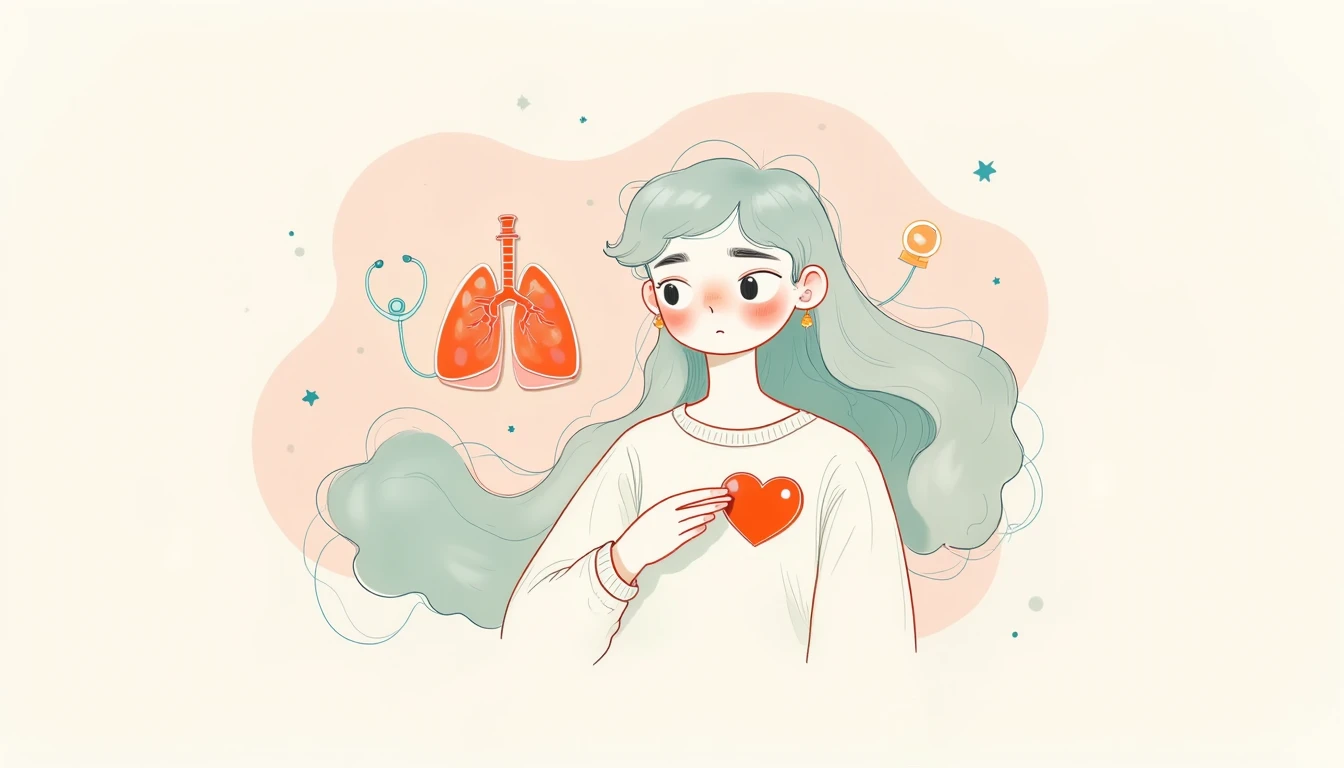Understanding Why You Experience Shortness of Breath
Have you ever found yourself gasping for air after climbing a flight of stairs or while trying to keep up with your energetic dog on a walk? You're not alone. Shortness of breath, medically known as dyspnea, is a common sensation. It's that unsettling feeling of not getting enough air. For some, it might be a fleeting moment, but for others, it becomes a persistent concern that can affect everyday life.
This experience can be disconcerting, often leading to anxiety and worry, especially when it happens unexpectedly. Like a shadow that lurks in the background, shortness of breath can sneak up on us, making us question our health and well-being. However, before letting your imagination run wild, it's important to understand the reasons behind this sensation. If you're curious about how other conditions affect your breathing, you might want to explore Understanding Shortness Of Breath Anxiety Or Heart Issues.
In this blog post, we'll delve into some of the most common causes of shortness of breath. We'll explore scenarios where it's just a normal part of life and when it might signal something more serious. Think of this as a conversation over coffee, where we break down complex topics into simple, digestible pieces, aiming to provide you with clarity and peace of mind.
Common Causes of Shortness of Breath
Everyday Triggers
Let's start with the everyday triggers—those moments when shortness of breath is just a natural part of life. Imagine you're at a party and decide to bust out your best dance moves. After a couple of songs, you might find yourself a little breathless. That's perfectly normal! Physical exertion increases our body's demand for oxygen, and sometimes our lungs need a moment to catch up.
Emotional responses can also play a role. You know that feeling when you're about to give a big presentation and your heart is racing? Anxiety and stress can lead to shallow breathing or hyperventilation, leaving you feeling short of breath. It's your body's way of preparing for a "fight or flight" response. For more on managing anxiety, check out Conquer Social Anxiety With These Simple Tips.
Medical Conditions
However, shortness of breath can also be a symptom of various medical conditions. For instance, if you have a cold or suffer from allergies, nasal congestion can make it difficult to breathe deeply. Asthma is another condition that can cause intermittent bouts of breathlessness due to the narrowing of airways.
Chronic conditions like Chronic Obstructive Pulmonary Disease (COPD) or heart disease can also manifest with shortness of breath. In these cases, the sensation is often more persistent and may require medical intervention. If you're dealing with persistent breathlessness, you might find it helpful to read about How To Tell If Shortness Of Breath Is From Anxiety.

Understanding Why You Experience Shortness of Breath
Environmental Factors
Believe it or not, the environment around you can significantly impact your breathing. High altitudes, for example, have lower oxygen levels, which can lead to shortness of breath until your body acclimatizes. Similarly, pollution, smoke, or allergens in the air can irritate your lungs and make breathing more difficult.
Even the weather plays a role. Hot and humid days can feel oppressive, making it challenging to breathe, while cold air can cause the airways to constrict, leading to shortness of breath.
Managing Shortness of Breath
Breathing Techniques
If you ever find yourself struggling to catch your breath, there are simple techniques that can help. One of the most effective methods is pursed-lip breathing. It's as simple as it sounds: breathe in slowly through your nose, and then exhale gently through pursed lips, as if you're blowing out a candle. This technique can help slow down your breathing and improve airflow.
Another helpful technique is diaphragmatic breathing, which involves focusing on drawing breath deep into your belly rather than shallowly into your chest. This can be practiced by lying down, placing a hand on your stomach, and feeling it rise and fall as you breathe.
Lifestyle Adjustments
Sometimes, managing shortness of breath means making a few lifestyle adjustments. Regular exercise can strengthen your heart and lungs, making it easier to breathe during physical activity. Activities like walking, swimming, or yoga can be particularly beneficial.
It's also essential to maintain a healthy weight, as carrying extra pounds can put additional strain on your lungs and heart. Quitting smoking and avoiding exposure to secondhand smoke can significantly improve your lung health and reduce episodes of breathlessness. For further guidance on lifestyle changes, consider reading Prioritizing Rest And Self Care.

Understanding Why You Experience Shortness of Breath
When to Seek Medical Advice
While occasional shortness of breath is often nothing to worry about, there are times when it's crucial to seek medical attention. If your breathlessness is accompanied by chest pain, fainting, or a blue tint to your lips or nails, it's vital to see a doctor immediately. These could be signs of a more serious underlying condition that requires prompt treatment.
Additionally, if you find that shortness of breath is affecting your daily life or is progressively getting worse, a healthcare professional can help diagnose the cause and suggest appropriate treatment.
Finding Relief and Comfort
Creating a Breathing-Friendly Environment
Creating a comfortable environment can make a big difference in managing shortness of breath. Ensure your living space is well-ventilated and consider using air purifiers if you're sensitive to allergens. Plants can also improve air quality and add a calming presence to your home.
Adjusting your sleeping position can help too. Sleeping with your head elevated can reduce the likelihood of breathlessness at night, ensuring you get a good night's rest.
Support Systems
It's important to remember that you're not alone in this journey. Having a support system—be it family, friends, or a support group—can provide emotional comfort and practical advice. Sharing your experiences with others can be incredibly validating and help reduce feelings of anxiety or isolation.
Don't hesitate to reach out to healthcare professionals for guidance. They can offer tailored advice and interventions to help manage your symptoms effectively.

Understanding Why You Experience Shortness of Breath
Conclusion
Navigating the world of shortness of breath can be daunting, but remember, it's okay to seek help and ask questions. Understanding the potential causes and knowing how to manage them can empower you to take control of your health. Whether it's through simple breathing exercises, lifestyle changes, or professional medical advice, relief is within reach.
As we wrap up this conversation, take a moment to listen to your body. It's always trying to communicate with you, even if sometimes it's just a gentle nudge to slow down and breathe deeply. You're not alone in this, and there's a community ready to support you every breath of the way.
Frequently Asked Questions (FAQ)
What are the common causes of shortness of breath? Shortness of breath can be caused by everyday activities like exercise or stress, medical conditions such as asthma or COPD, and environmental factors like high altitude or pollution.
When should I see a doctor for shortness of breath? You should seek medical advice if your shortness of breath is accompanied by chest pain, fainting, or a blue tint to your lips or nails. It's also important to consult a healthcare professional if your symptoms are worsening or affecting your daily life.
Can lifestyle changes help with managing shortness of breath? Yes, regular exercise, maintaining a healthy weight, quitting smoking, and avoiding exposure to pollutants or allergens can help manage shortness of breath effectively.
Are there specific breathing techniques to help with shortness of breath? Breathing techniques such as pursed-lip breathing and diaphragmatic breathing can improve airflow and help reduce breathlessness.
How can the environment affect my breathing? Environmental factors such as humidity, cold air, pollution, and allergens can impact your breathing by causing airway constriction or irritation.
Are you interested in learning programs and a personal AI companion to talk to? Try out MindLumen AI to improve your mental wellbeing with AI therapy and companionship. You can try it out for free.
Get started with MindLumen


